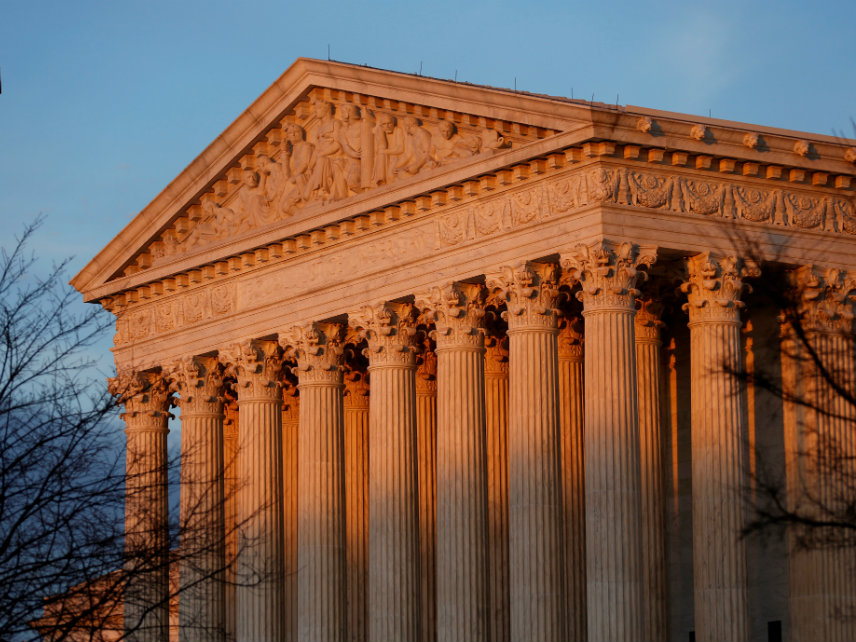The Supreme Court's Big Public Sector Union Case Is Really About Free Speech
Can public sector unions force recalcitrant workers to pay dues, or does that violate the First Amendment?

Mark Janus did not vote to join a union, and he does not support the union that he was forced to fund as a condition of his job.* Nevertheless, each month the Association of Federal, State, County, and Municipal Employees, Council 13, takes a cut of Janus' paycheck.
Late next month, the U.S. Supreme Court will tackle the question of whether that should be legal. For now, unions in many states are able to collect mandatory dues payments from millions of public sector workers, whether or not those workers want those unions to speak for them. The unions, after all, don't just negotiate with employers about pay and working conditions; they regularly lobby for and against a range of public policies.
Janus v. AFSCME Council 31 is best thought of as a sequel to Friedrichs v. California Teachers Association, a 2016 Supreme Court case that raised the same question about whether public-sector unions can extract political dues from recalcitrant members. That case ended in a 4-4 draw after Justice Antonin Scalia's sudden death left the Court with an even number of conservative and liberal members. For obvious reasons, that means all eyes in this case will be fixed on the newest justice, Neil Gorsuch.
While the case could have far-ranging implications for labor policy at all levels of government, it will likely turn on a relatively simple question: Does money equal speech?
In a newly published analysis of the arguments in the Janus case, Trey Kovacs, a policy analyst with the Competitive Enterprise Institute, says it does.
"Workers should not have to fund an organization with which they disagree in order to keep their jobs," says Koavks, "especially organizations like public-employee unions, which are inherently political."
Janus, like Friedrichs, takes aim at an earlier case: 1977's Abood v. Detroit Board of Education, when the Supreme Court ruled that public-sector unions could levy compulsory dues. Without those mandatory payments, the Court reasoned, unions would have to represent "free riders" who benefit from the representation of a union without contributing anything in return. As Damon Root noted in the January Reason, that decision has been a major boon to public sector unions.
In its filing in Janus, AFSCME calls mandatory dues a "small intrusion on employees' First Amendment interests."
Writing at The Volokh Conspiracy (which Reason hosts, though it is editorially independent), UCLA law professor Eugene Volokh suggests that the First Amendment argument might not be as compelling as Janus and his allies think.
"The government can constitutionally require people to pay money to the government (in taxes), money that the government can then use for ideological purposes (e.g., supporting a war, opposing racism, promoting environmentalism, and so on)," Volokh writes. "Likewise, the government can constitutionally require people to pay money to unions, money that the unions can then use for ideological purposes."
The legal distinction, if the justices wish to draw one, could lie in the difference between being forced to pay money to the government and being forced to pay money to a nongovernmental third party.
At least some ears on the bench will probably be receptive to Janus' position. "Preventing nonmembers from free-riding on the union's efforts," Justice Samuel Alito wrote in 2014, is "generally insufficient to overcome First Amendment objections."
"Except perhaps in the rarest of circumstances, no person in this country may be compelled to subsidize speech by a third party that he or she does not wish to support," Alito concluded.
This piece was updated to clarify that Janus is not a member of the union, but is forced to contribute to it.


Show Comments (140)